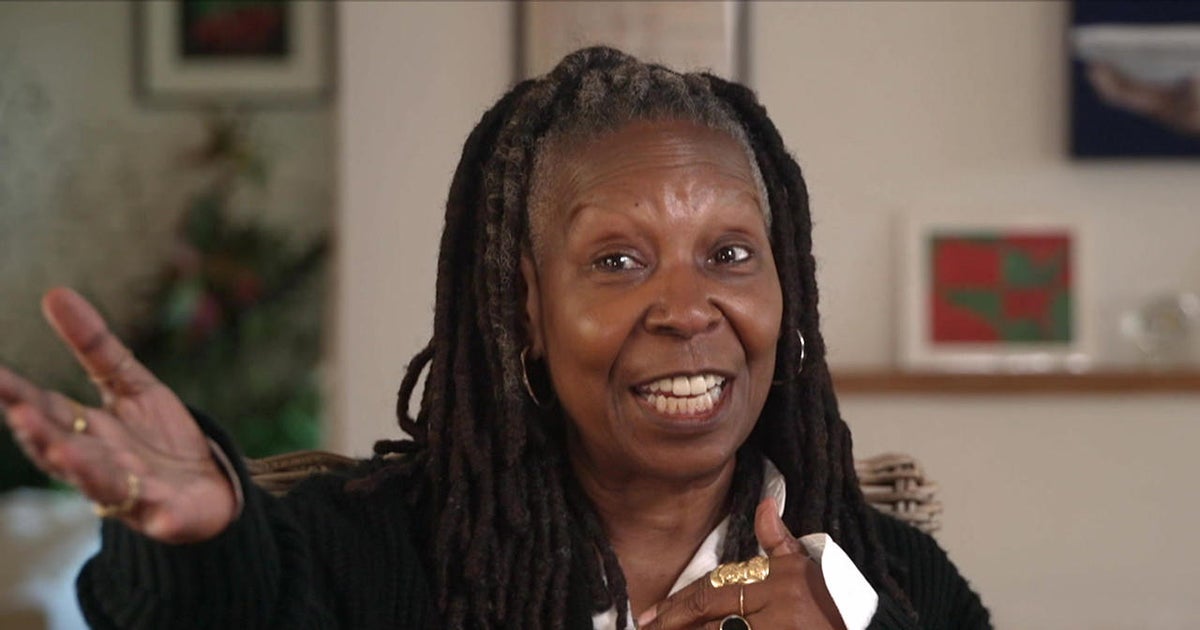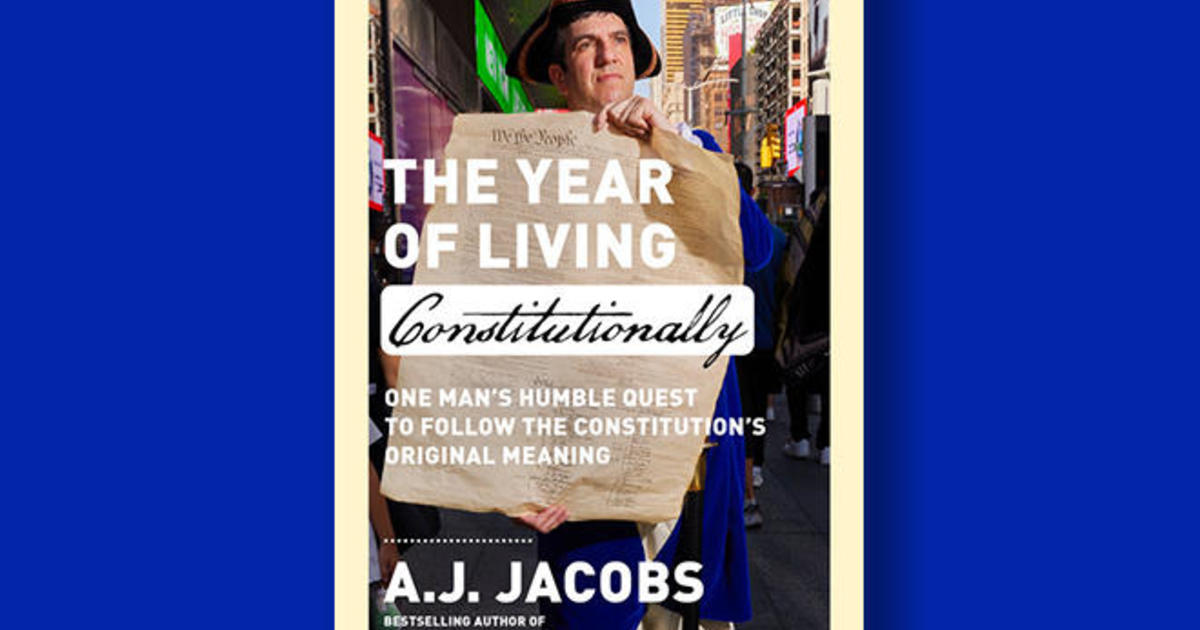Irving Berlin, the quintessential American songwriter
Nat King Cole lit up the room with him with "Blue Skies"; Judy Garland broke hearts with him with "What'll I Do"; and Fred Astaire danced to him, as did Gene Wilder and Peter Boyle (sort of), with "Puttin' On the Ritz."
As a fellow songwriter once said of the man who wrote all those songs: "Irving Berlin has no place in American music; he is American music."
Broadway musical director Andy Einhorn, a longtime fan of Berlin's, said, "I think what's interesting now is we hear these songs and we define them, the term that people always say is: Why are they timeless? You know, he spoke directly to our heart."
Berlin wrote more 1,500 songs, for every mood, and every occasion.
He wrote "White Christmas," which Bing Crosby first performed on his NBC radio show on Christmas Day, 1941. He also wrote the classic "Easter Parade." Perhaps surprising when you consider that Berlin was a Jewish immigrant.
"Irving Berlin is actually the quintessential American Dream," Einhorn told correspondent Mo Rocca.
He was born Israel Baline in Russia in 1888. As a five-year-old, he watched as his family's house was burned to the ground. Victims of religious persecution, they found refuge in America, settling in New York City's Lower East Side. When Berlin was 13, his father died. The family needed money.
"One of the things he did was busking, singing on the street. Singing for restaurants. Singing in clubs," said Josh Perelman, chief curator at the National Museum of American Jewish History in Philadelphia.
Berlin soon started writing his own songs – words and music. He bought his first piano at age 21; he owned it when he composed "Alexander's Ragtime Band," his first international hit.
"His process was often to imagine the music in his head, and then use what skills he had as a pianist to find the melody," Perelman said.
Berlin was not a great pianist. He could only play in one key, F-sharp (the black keys). So, he bought a special piano. By pulling a knob, the whole keyboard moved, changing keys.
In the 1920s, Berlin fell in love with a young heiress, Ellin Mackay. It was a big deal, given that he was Jewish, and she was Irish Catholic. "Her father did not approve," said Katherine Swett, Irving and Ellin Berlin's granddaughter. In fact, Ellin's father initially disowned her.
But the marriage lasted 63 years.
Swett went to the house where her grandparents lived in the Catskill Mountains in Upstate New York every summer until she was a teenager. "He bought it and gave it to her as a Christmas present," Swett said. "And it's a place that we all came to as children and adored."
She showed Rocca Berlin's 1942 Academy Award for "White Christmas," a song with an origin story that wasn't exactly merry and bright.
"It has a melancholy underpinning, the song," said Swett. "My grandparents had a baby boy, Irving Berlin, Jr., and he died on Christmas Eve, when he was just four weeks old – Christmas Eve, 1928."
"Were you aware growing up that privately they were grieving on that day?" asked Rocca.
"It's not something we could talk about. No, they were very private about it."
In 1918, while Berlin was serving in the U.S. Army, he wrote a musical revue for his fellow troops that initially included a song called "God Bless America." Einhorn said the song wasn't considered "up to snuff," so Berlin put the song away in his trunk.
Twenty years later, with Hitler threatening the world order, Berlin thought the song's time was right, as a message of peace. "He ended up slightly revising the lyric, and then he gave it to the singer, Kate Smith," said Einhorn.
She sang it on her radio show in 1938, and it quickly became a kind of second national anthem:
But for Berlin, the song was personal.
Swett said, "My mother always likes to point out that it's 'God Bless America, land that I love,' right? Not we. That it's about his love of America, and I think that's very sincere. I think he really was very grateful to this country."
Kate Smith raised hundreds of millions of dollars in war bonds singing "God Bless America." But this year the New York Yankees and the Philadelphia Flyers stopped playing her version, and the Flyers removed a statue of her, after it was discovered that Smith had sung two songs with racist lyrics in the 1930s.
But a different kind of controversy swirled around "God Bless America" early on. "There were anti-Semites who said, 'Who is this Jewish man to call on God to bless America?'" said Swett.
Shulem Lemmer is a ultra-orthodox Jewish performer who grew up in Brooklyn. A fifth-generation American," he told Rocca, "'God Bless America,' I can be here singing for the whole of America and stay true to who I am.'"
He said the first time he remembered hearing the song was in Yiddish. "Got Bentsh Amerike…"
"There's an album called 'Mamaloshen,' from Mandy Patinkin," said Lemmer. "So, I listened to that album growing up, And he has 'God Bless America," and he sings it in Yiddish."
Lemmer has sung the song at major league baseball games.
Rocca asked, "How do you feel when you sing it?"
"Very grateful," he replied. "We're all very grateful for the United States, for America. For their involvement in World War II, especially as Jews. Who knows what the population would be if not for the American involvement in World War II? So, I feel very grateful. And as an Orthodox Jew, what better way to express gratitude to the United States than with a prayer to God? And that's exactly what the song is."
BOOK EXCERPT: "Irving Berlin: New York Genius" by James Kaplan
For more info:
- irvingberlin.com (Irving Berlin Music Company)
- Follow @Irving_Berlin on Twitter and Instagram
- National Museum of American Jewish History, Philadelphia
- Shulem (Official site)
- "Irving Berlin: New York Genius" by James Kaplan (Yale University Press/Jewish Lives), in Hardcover and eBook formats, available via Amazon
Story produced by Jay Kernis.



